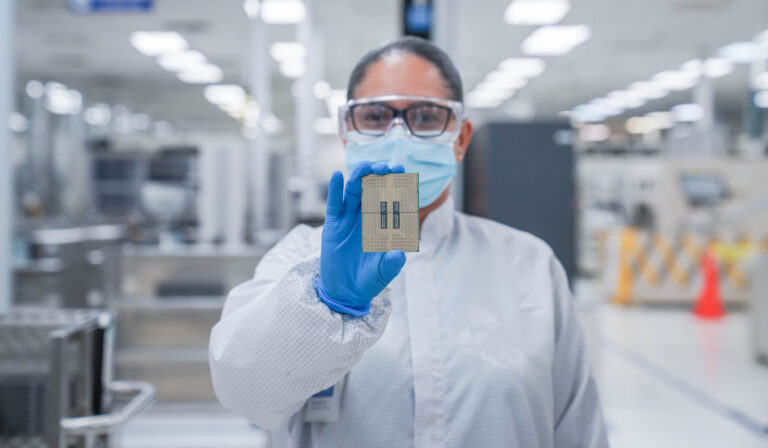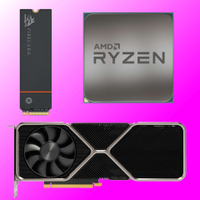Intel is reportedly in talks to spin off its chip factories into a partnership with arch rival TSMC and now I think I've seen everything
Next week, cats and dogs living together.

I've seen pretty much everything in this industry over the years. And, yes, that does include a man eating his own head. But Intel and TSMC going into the chip foundry business together? Sorry, what?
This rumour, and it very much is a rumour, comes from an equities analyst at investment bank Baird who cited discussions between TSMC and Intel. According to the Wall Street Journal and to broadly précis this particular yarn, the rough idea is for TSMC to send some of its best engineers to Intel's fabs to sort them out. They can then be spun off into a separate entity managed by TSMC but co-owned by both companies.
If you're thinking this sounds like wild speculation, it does. But the markets are taking it seriously, with Intel's share price spiking by fully 6% when the rumour broke. So the question is, does it make sense?
For starters, if there's any truth to this story then it speaks volumes about the health of Intel's all-important upcoming 18A node. And not in a good way. If 18A is all Intel is cracking it up to be, then there would be no need to parachute in TSMC engineers and Intel wouldn't be looking to spin off its fabs.
Personally, I doubt 18A is as healthy as Intel claims, otherwise CEO Pat Gelsinger would not have been ejected, sorry retired, from his role. So, let's take this rumour seriously for a moment and consider the implications.
On the one hand, the idea that TSMC in part or whole takes control of Intel's fabs could be great for the US chip industry and the broader chip supply chain. The world's chip supply would no longer be so dependent on production in a location constantly teetering on edge of a geopolitical crisis thanks to tensions between Taiwan and China.
More chips produced in the US also sidesteps any concerns over increasing electronics prices thanks to the possible imposition of hefty tariffs on Taiwanese chip of up to 100% by the Trump administration.
The biggest gaming news, reviews and hardware deals
Keep up to date with the most important stories and the best deals, as picked by the PC Gamer team.
On the other, handing over control of even more of the world's cutting-edge chip production to TSMC looks like a megamonopoly in the making. And it's hard to find any examples of long term and overwhelming monopolies in important industries working out well for the average consumer.
You could take the view that if Intel's fabs are in more trouble than the company is letting on. It might be a choice between partnering with TSMC or watching those fabs go up in proverbial smoke.
In other words, the real-world choice might be between partnering with TSMC or seeing Intel's fabs down and ceasing to exist in the medium term. In which case, it's got to be worth giving the TSMC thing a go. After all, the US government could take control of or shutter those fabs should it wish.
Moreover, if tensions between China and Taiwan increase yet further, TSMC may benefit from a larger US presence. It already has a 4nm fab of its own up and running in the US, with 3nm and 2nm fabs in the planning.
In the long run, that could once again make the US the global center of chip production. And yet the idea makes my spidey sense tingle. You only have to look at graphics card prices to see what happens when one company dominates. The idea that TSMC swallowing up Intel's fabs is going to be a good thing for we mere gamers doesn't feel at all convincing.
In the end, the only thing we can be fairly confident of is that the next decade or so looks likely to be volatile if not tumultuous in the tech industry. Tariffs, AI, geopolitics, scalpers, fake frames, a mooted mega monopoly in chips, it's all pretty baffling. Long gone are the innocent days when the most controversial aspect of building a new gaming PC was whether you were an Intel or AMD fan. It's all so much more complicated now.
Best CPU for gaming: Top chips from Intel and AMD.
Best gaming motherboard: The right boards.
Best graphics card: Your perfect pixel-pusher awaits.
Best SSD for gaming: Get into the game first.

Jeremy has been writing about technology and PCs since the 90nm Netburst era (Google it!) and enjoys nothing more than a serious dissertation on the finer points of monitor input lag and overshoot followed by a forensic examination of advanced lithography. Or maybe he just likes machines that go “ping!” He also has a thing for tennis and cars.


